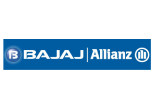Money Back Policy Or Term Insurance: Major Differences you Should Be Aware of
Table of Contents
There are a number of insurance plans available in the market today. However, two of the most popular insurance policies offered by insurance carriers, including banks and insurance companies: term insurance plans and money back policies. These each have their own advantages, drawbacks, and tax advantages.
Understanding the variations in features and advantages is essential when choosing between two or even more insurance products. Due to the similarities in advantages between term insurance and money back plans, many consumers are perplexed and find it difficult to decide between money back policy and term insurance. This article emphasises the distinctions between features of each product to better help you comprehend them.

Basics About Money Back Plan and Term Policy
In the sad event that something were to happen to you while the policy was in effect, a term insurance policy would offer your loved ones and other relatives financial protection.
A money back policy, in contrast, is a type of insurance that offers life coverage for a set period of time. Additionally, the policy offers regular financial returns that are paid straight to the insurance customer.
Major Differences Between Money Back Policy and Term Insurance
Although both of these plans offer benefits similar to life insurance, there are notable variances in the conditions and the money back guarantee. Due to these variations, it is crucial to understand the specifics of the selected insurance policy before making a choice.
1. Coverage
If the client survives the policy period, term plans offer a refund of premium. Guaranteed income plans can be thought of as money back policies.
The promised cash, interest, and bonuses will be given to the policyholder's family in the event of death, nevertheless. Term insurance policies only provide the amount insured under the policy, interest-free.
2. Economic Support
Returns are given under money back policies on a regular basis. Therefore, you can use this sum to help pay for your family's expenses this month. You won't get any financial assistance throughout the policy's term, though, because term plans don't pay out at that time.
3. Cancellation Fees
If the payment is not paid by the due date, a term plan is automatically cancelled, and you won't be paid any benefits. A money back policy, however, allows you to cancel the coverage and reclaim the sum assured for a little price.
4. Tax Advantage
Money back policies and term insurance have a lot in common because both offer tax advantages. Any life insurance premiums paid may be excluded from taxation under section 80C. For such insurance, the maximum exemption is around INR two lakh.
5. Return on Investment
You won't get any money if you live past the duration of the term plan. Additionally, the policy's promised sum will not be paid to you. A money back insurance, on the other hand, will pay you the guaranteed amount in one lump sum if you live out the policy's term.
Endnotes
It is clear that both policies have benefits once you consider how term insurance and money back policies differ from one another. However, given that it offers a bigger sum assured, a term plan is preferred over money back insurance, say numerous financial experts.
Also Read:



























































